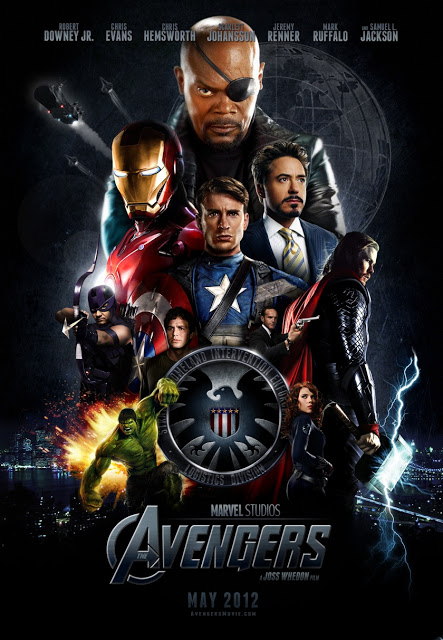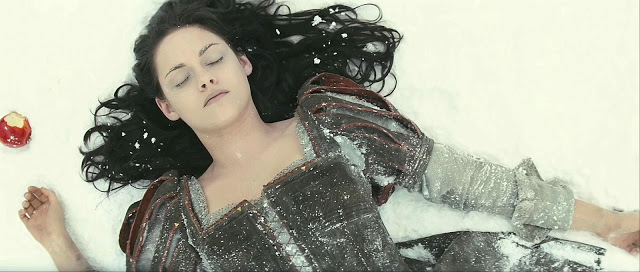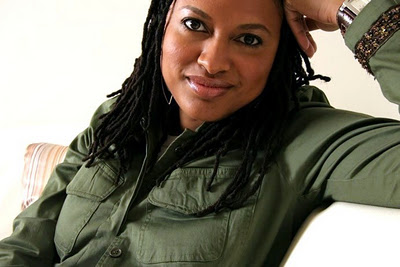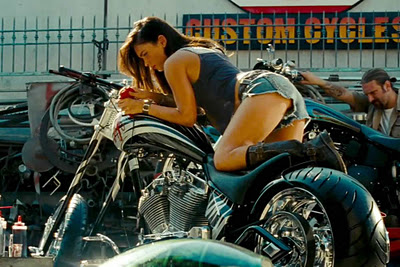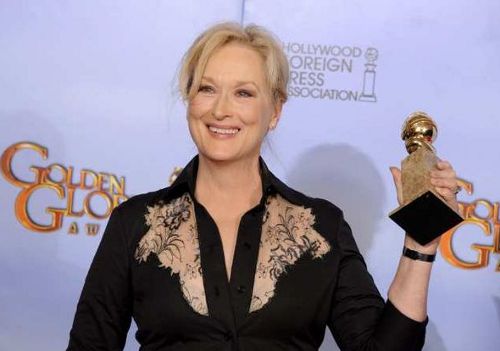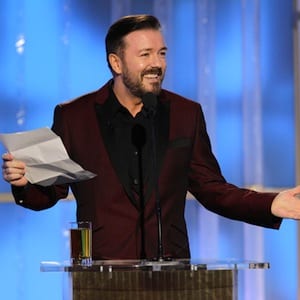Of the Best Actress nominations at the Oscars this year, two stand apart from the rest. Not because of the skill of the actresses, but because they depict real-life figures. Through these portrayals much can be learned about the ways women are represented on screen:
The Iron Lady starring Meryl Streep as Margaret Thatcher, and
My Week with Marilyn with Michelle Williams playing Marilyn Monroe.
Characterisations in fiction can always be dismissed with a flippant “it’s only a story,” remark. However, both of these depictions come with the burden of hours of footage and innumerable documentary evidence to inform our perception of how “believable” and accurate the portrayals are. We can directly compare scenes from these films with original footage, and clearly see how both actresses must have studied relentlessly for their roles. Nevertheless, while the intention may have been to throw light onto the motivations and private psyches of these icons, the films have in fact revealed how far there is to go before female characters on screen are reflective of what women are really like.
Margaret Thatcher became the first (and so far, only) female Prime Minister of the United Kingdom. One of the most controversial politicians of the twentieth century, she was loathed by much of the country when she was eventually ousted from her position by her own party. She is now 86 years old and suffers from Alzheimer’s.
Marilyn Monroe remains the greatest female film icon 50 years since her death at the age of 36. During her career she walked out on her contract with the most powerful studio in Hollywood to form her own production company in a bid to be taken seriously as an actress in an unprecedented move that foreshadowed the downfall of the studio system.
 |
| Meryl Streep and Margaret Thatcher |
In The Iron Lady we are introduced to Baroness Thatcher as she is today – frail, widowed and in the grip of dementia. For the first 20 minutes of the film, her vulnerable position is made clear as she holds conversations with her long-deceased husband, and her care-worn daughter attempts to help her with simple daily tasks. The ravages of her devastating illness present a character so feeble and subjugated that it is impossible to feel anything but pity for the predicament she is in. From this starting point of total empathy, we are then invited to look back over her life in a series of flashbacks.
The ferocity of the woman’s ambition is tempered with reminders of her weakened state, as the film intersperses present day scenes of awkward dinner parties and domestic banality, between expositional recreations of famous public moments. Most fascinatingly, once the role of Thatcher has been assumed by Meryl Streep, her husband Denis, played with almost farcical humour by Jim Broadbent, is always shown at the age he was when he died; it is her memory of her dead husband that appears. His presence serves both as a reminder that it is the memories of an infirm woman we are seeing, and to emphasise her dependency on him (symbolically when she is being interviewed outside Downing St after having won the Election, Denis is shown in the background, standing on the doorstep of Number 10).
Most troublingly however, is that so little time is spent showing the woman’s character. The well-known facts are retold economically – grocer’s daughter decides she will enter politics, bucking class and gender stereotypes, etc. Yet even her decision to run for Leader of the Opposition is a decision she is coerced and then fashioned into (by senior male colleagues). The time spent with her in private spaces is entirely set during the present time when she is deeply unwell, and is so heartrendingly sentimental that it lacks any insight into the complex sides of her personality.
At times during her tenure, Margaret Thatcher was despised by many, and revered by others, and it is the reasons for this that hold most interest. Yet even some of the most crucial and controversial points in her career (miners’ strikes, poll tax riots) are glossed over in montage footage. Her regrets and conflicts of conscience are briefly alluded to in confused nightmares during the present day, with no depiction of their effect on her at the time they were occurring. What is truly fascinating about a woman such as Margaret Thatcher, or any controversial political figure, is what the motivations were behind the controversies: how did she handle being so despised; what was her logic behind the audacious policies she initiated; what were those decisions were based on; how did the consequences of her decisions make her feel? The answers to these questions may not endear her to an audience, but they are vital to developing an understanding of her, and to giving a rounded portrait of the woman dubbed “The Iron Lady.” Central characters do not need to be likeable after all, but they should be believable.
Meryl Streep’s astonishing performance recreates with expertise Thatcher’s most famous public moments, her mannerisms, and speech. However, this interpretation does not deepen our understanding of the woman who led the UK into war with the Falklands, and remains the country’s longest serving Prime Minister to date.
By choosing to focus on the elderly Thatcher, The Iron Lady sanitises her by using domesticity. Her strength is simplified into stubbornness and her forthright opinions and brutally impersonal policies are diluted by the bantering affection she shares with her dead husband. The writer Abi Morgan has stated how it is the loss of power that she was most interested to depict, but as a viewer, it seems an opportunity has been missed. Time and again women are depicted in ill health, tackling menial domestic chores, mourning loved ones, and being powerless. Margaret Thatcher was a truly fearless and defiant female character, uncompromisingly ambitious and divisive. It is an insight into the challenging aspects of her personality that this film had the potential to show. However, it seems there is no film language to portray these facets of a female character. Strength, intelligence, charisma are denoted in relation to male counterparts, and it is only through the prism of her relationships with men that Thatcher is depicted – most obviously through her connection to her dead husband.
 |
| Michelle Williams as Marilyn Monroe |
My Week with Marilyn, based on the bestselling book of the same name, recounts the experiences of “gofer” Colin Clark (the book’s author) during the filming of The Prince and The Showgirl. There is much to suggest that Colin Clark and Marilyn Monroe never even spoke, let alone ended up sharing a bed, and it is widely believed the book is entirely fictional, written along with many others to cash-in on Monroe’s legacy. However, regardless of the veracity of the book, it is interesting to look at the way the filmmakers have chosen to portray Monroe.
There is much anticipation built up in the opening scenes as excitement increases with the prospect of Marilyn Monroe arriving in England. She was the biggest movie star in the world at this time, and The Prince and The Showgirl was the first film to be made by her production company that she set up in defiance of the type-casting she received in Hollywood. As a naïve and star-struck young man, Colin is desperate to be involved with the production, and manages to secure a junior position as a gofer on the film.
The hoopla surrounding her arrival is depicted with startling accuracy when compared with the original footage, and Michelle Williams delivers a trademark “Monroe-ism” with flirtatious delight when asked if it is true that she sleeps in nothing but Chanel No 5: “As I am in England let’s say that I sleep in nothing but Yardley’s Lavender” she declares. It may be that a casual viewer would not notice that the portrayal of Marilyn Monroe is undermined from this very first sequence: however, the question is posed to her by Toby Jones, playing Arthur Jacobs, Monroe’s publicity man. The implication is that, far from coming up with her witticism spontaneously, she has been fed a line. Throughout her career, many who worked with Monroe remarked on her natural intelligence, comedic timing and incisive wit, and yet this cynical scene immediately suggests that is not the case.
As Colin finds himself indispensable to Marilyn Monroe during the course of the film’s shoot (cue to suspend disbelief) the pair take off around some of the UK’s beautiful countryside and historic sites. In the library of Windsor Castle, a wide-eyed Marilyn gasps, “Gee, I wish I could read this many books!” Such astonishingly naïve a line, it literally draws snorts of amusement at the woman’s ignorance, and is followed by, “Isn’t he the guy who painted the lady with the funny smile?” when presented with a Da Vinci etching. Yet Marilyn Monroe’s study of literature throughout her lifetime – she took up night-school classes at the beginning of her career instead of attending Hollywood parties – as well as her passion for renaissance art, are well documented in biographies. So the decision to disregard these facts, and to choose instead to exaggerate the “dumb blonde” image is no accident. No mention is even made of the fact that on this film she was a Producer, and therefore Laurence Olivier’s boss: this and their conflicting approaches to acting were reasons why their relationship on set was so fractured.
 |
| Marilyn Monroe |
Although devastatingly insecure about her talent and notoriously late on set Marilyn Monroe was no victim – especially at this point in her career. Known to moments of rage, and fiercely passionate about her craft, the depiction of her as a weeping child-woman too frail to articulate her emotions is to undermine the complexity of an actress who has continued to captivate audiences five decades after her passing. That she would find solace in the arms of any young man that found himself captivated by her, is to assume not only her complete disregard for the new husband for whom she converted to Judaism to wed, but serves to perpetuate myths about her sexual promiscuity.
When looking at the characterisations of Marilyn Monroe and Margaret Thatcher in My Week with Marilyn and The Iron Lady it is crucial to remember that the way they have been portrayed is not by accident. Nor are these the only ways in which they could have been depicted, and neither should they be considered exact or entirely true. These characterisations have been constructed and depict women stripped of their complexity, strength, intelligence, wit, and dynamism: the very things that made them so successful and iconic. This inevitably raises questions about why.
Consistently the call comes for more interesting and diverse female characters in film, yet too often that means showing women who have been victimised and exploited. Even when historic figures have demonstrated extraordinary courage, making remarkable achievements in their lives, they are diminished when characterised on film. It is not because stories of amazing women do not exist, but the perspective their tales are told from. Perceptions of women as reactive and submissive stereotypes will remain in place when even the most extraordinary females are reduced to clichés, and it is up to producers, directors and writers to be fearless enough to show women as active participants in their own lives to ensure this is changed.
Gabriella Apicella is a feminist writer and tutor living in London, England. She has a degree in Film and Media from Birkbeck College, University of London, is on the board of Script Development organisation Euroscript, and in 2010 co-founded the UnderWire Festival that aims to recognise the raw filmmaking talent of women. Her writing features women in the central roles, and she has been commissioned to write short films, experimental theatre and prose for independent directors and artists.
